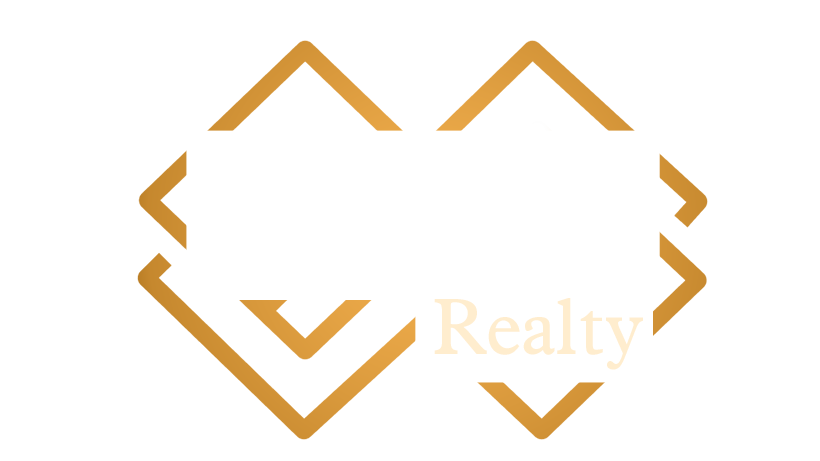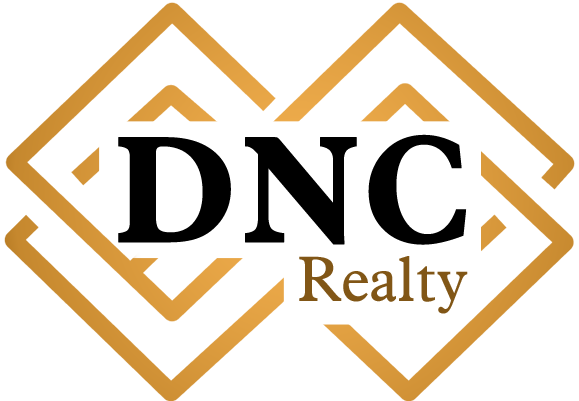Mortgage Investment in Real Estate: A Beginners Guide
Everyone wants to invest in real estate and honestly funding has become a big issue so in order to win we would be exploring one of the most common real estate investment sources (mortgage). If you are new to the world of mortgages there are certain things you need to understand which we did be discussing in this article. Right here, I will love to walk you through mortgage investment in real estate, types of mortgages available, their benefits, risks and essential tips for success in this venture.
Understanding Mortgage Investment for Real Estate
What is Mortgage
A mortgage is a loan that specifically gives investors the opportunity to make real estate investments. It allows you to buy a property by borrowing money from a lender i.e. a commercial or financial institution and you repay the loan over a specific period, usually 15, 20, or 30 years.
Listed below are various types of mortgages to consider:
1. Conventional Mortgages: These are standard loans commercial banks and lenders would offer you. They typically require a down payment, which is likely from 3% to 20% of the property’s purchase price. Interest rates for conventional mortgages can vary based on your credit score and financial stability.
2. FHA Loans: The Federal Housing Administration (FHA) offers loans with lower percent down payment requirements (as low as 3.5%) and more lenient credit score criteria. FHA loans are popular among first-time real estate investors.
3. VA Loans: These are loan packages reserved for eligible veterans, active-duty service members, and certain members of the National Guard and Reserves, VA loan offers competitive interest rates and require no down payment.
4. The National Housing Fund (NHF) loan: If you are a Nigerian this is a housing finance program provided by the government available in the country to support citizens in acquiring both residential and commercial properties, especially where they are among the low and middle-income earners. It is a scheme designed to make homeownership more affordable and accessible to a broader segment of the population.
5. Portfolio Loans: This is an option where you enjoy loans from some private lenders and credit unions with more flexible terms and eligibility requirements than traditional mortgages.
How Mortgages Benefit Investors
Leverage in Real Estate
One of the most significant advantages of mortgages is the concept of leverage. Interestingly mortgages allow Investors to use a relatively small amount of their capital to acquire a more valuable property. This leverage amplifies the potential return on investment when the property appreciates.
Investment Diversification
Aside its leverage opportunity, mortgages allow investors to diversify their real estate portfolio. Instead of putting all your capital into a single property, you can spread your investments across multiple properties with the help of mortgages, and you will be earning huge returns on your capital appreciation.
Property Appreciation
What other investment can you put in $30m today and get $40m within 18 months? Real estate has historically proven to be the best form of investment due to its level of appreciation over time. Mortgages enable investors to benefit from this appreciation even if they can’t afford to buy the property outright. As the property’s value increases, so does the investor’s equity.
The Mortgage Process
Pre-Approval
Yes, at this point, you already know what you want, so get started. Before embarking on that property hunt, you as an investor, need to get pre-approved for a mortgage. This involves a thorough review of your financial capacity, and credit score, which determines the amount you can borrow. This is done by the commercial or mortgage institution of your choice. So I advise you to take the time to search for the best mortgage institution that can meet your needs towards acquiring any property.
Property Selection
Once pre-approved, investors can start searching for suitable properties that fit within their budget. At this point note the type of property you desire to acquire, the location of the property, with its potential for rental income as these are crucial factors you need to consider.
Loan Application
After finding the perfect property, investors complete the mortgage application, which includes detailed information about the property and the borrower’s financial status, location of the property, status of the property, and borrower’s full information.
Closing the Deal
The final step is the closing process, where all necessary documents are signed, and the property officially changes ownership. Here you get the congratulations as a proud property investor.
Choosing the Right Mortgage
Mortages are sure cool and attractive but first Investors need to do their research inorder to select the mortgage type that best aligns with their financial goals and risk tolerance. Fixed-rate mortgages offer stability, while adjustable-rate mortgages can be more flexible. Interest-only mortgages allow for lower initial payments but come with increased risk.
Risks and Considerations
As a real estate Investor you need to be aware of potential risks, including fluctuating interest rates and market volatility. Additionally, managing rental properties can be very demanding, so it’s essential to be prepared for the responsibilities that come with property ownership and shoulder it fully.
Risks and Considerations
While mortgages offer several advantages, it’s essential to be aware of the potential risks and considerations:
- Market Risk: Real estate values can fluctuate, and a downturn in the market can affect your property’s value and rental income.
- Interest Rate Risk: If you have a variable-rate mortgage, you must be aware that rising interest rates can increase your monthly payments.
- Cash Flow Challenges: If you can rent out the property consistently or charge sufficient rent, you may need help to cover mortgage payments and maintenance costs.
- Property Management: Managing a rental property can be time-consuming and may require hiring a property/facility manager.
- Loan Qualification: Depending on your credit score and financial history, mortgage approval can be challenging for some investors.
Tips for Successful Property Investment
To maximize the benefits of using mortgages for real estate investment, consider these tips:
- Research Extensively: Study the local real estate market thoroughly. Understand property values, rental rates, and potential for growth in the area.
- Build Good Credit: A strong credit score can help you qualify for better mortgage terms and lower interest rates.
- Create a Financial Plan: Develop a budget and financial plan to ensure you can comfortably cover mortgage payments and other property expenses.
- Diversify: Avoid putting all your investment capital into a single property. Diversify your real estate portfolio to spread risk.
- Understand Property Management: If you plan to manage the property yourself, learn about property management best practices or you better hire a professional because its necessary.
- Account for Hidden Costs: Remember that owning an investment property comes with maintenance, insurance, and property tax expenses in addition to the mortgage.
- Plan for the Long Term: Do not go into the real estate market with the mindset to gamble in and gamble out or the get rich quick scheme. Real estate investment is often a long-term endeavor. Be patient and prepared for fluctuations in the market.
The Role of Mortgage Brokers
Navigating the complex world of mortgages can be overwhelming, and that’s where mortgage brokers come in. These professionals are well-versed in the mortgage market and can help you find the best deals. They work with multiple lenders, which means they can present you with a variety of options, ensuring you get a mortgage tailored to your specific needs.
Building Equity Over Time
One of the key benefits of holding a mortgage is the opportunity to build equity. Equity is the difference between the current market value of your property and the outstanding balance on your mortgage. As you make monthly payments, a portion goes towards reducing the principal amount you owe, which in turn increases your equity. Over time, your equity can become a substantial asset, which can be used for further investments or even sold for a profit.
Mitigating Risk with Real Estate
Investing in real estate can be a smart way to diversify your investment portfolio. Unlike other assets that can be subject to rapid market fluctuations, real estate often offers more stability. Property values tend to appreciate over time, and you can generate rental income, providing a steady cash flow.
However, like any investment, there are risks involved. Market conditions can change, affecting property values, and managing rental properties can be demanding. That’s why having a well-thought-out strategy, along with a mortgage, can help mitigate some of these risks.
Tax Benefits
Owning a property with a mortgage can also provide you with tax advantages. In many countries, mortgage interest payments are tax-deductible. This means you can reduce your taxable income, resulting in potential savings on your annual tax bill. The tax benefits can make real estate investment even more attractive.
Importance of Professional Guidance
You certainly can’t go into what you don’t know or have adequate information about blindly. Investing in real estate with a mortgage is a significant financial decision. To navigate this journey successfully, it’s advisable to seek professional guidance. A financial advisor or real estate expert can provide insights into your specific financial situation and investment goals. They can help you create a well-rounded investment plan that incorporates mortgages and real estate, ensuring that you make informed choices.
Conclusion
Mortgages are invaluable tools for investors looking to enter the world of real estate. They offer the opportunity to leverage your investments, diversify your portfolio, build equity, and enjoy tax benefits. However, it’s essential to understand that real estate investment also carries its own set of responsibilities and risks. By being well-informed and seeking professional assistance which is very important, you can make the most of this real estate mik and honey successfully.
To draw this curtain here, investing in properties through mortgages is a compelling strategy for long-term wealth creation and financial security. As you embark on your journey into real estate, remember to stay informed, plan diligently, and consider the unquestionable assistance of professionals. The world of real estate awaits you in unveiling numerous opportunities as an investor.
FAQs
- What is a mortgage? A mortgage is a financial instrument that allows individuals to purchase real estate by borrowing money and repaying it over time, usually between 10-20 years all based on the agreement between the parties involved.
- Can I invest in property without a mortgage? Yes, but having a mortgage can offer significant advantages, such as leveraging your investment and diversifying your portfolio.
- How do I find the right lender? Research various lenders, compare their terms, and consult with a mortgage broker for expert guidance.
- What is the role of credit in mortgage approval? Credit plays a crucial role in determining the terms and interest rate of your mortgage. A good credit score can lead to better mortgage deals.
- Are there tax benefits to having a mortgage? Yes, in many countries, mortgage interest payments are tax-deductible, which can result in significant tax savings for homeowners and investors.
Investing in real estate through mortgages can be a rewarding journey, providing financial security and growth opportunities for smart investors so take advantage of this.






